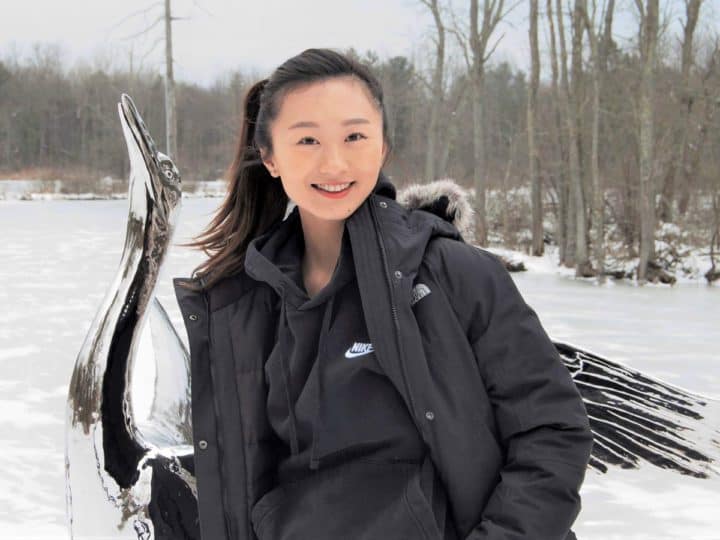
Responsible Lighting at Night: The Impacts of Light on Wildlife & Ecosystems
Thurs., March 3, 2022 from 3pm-4pm EST
Although artificial lighting at night has enabled humans to increase our work and recreational activities outdoors at night, the incorrect use and application of light at night can radically alter the nocturnal environment for many species and ecosystems, impacting their ability to thrive. These disruptions to wildlife and ecosystems can create lasting implications on the longevity of animal populations and on maintaining the balance of ecosystems on our planet.
This webinar will introduce the topic of environmental impacts of light at night on wildlife and ecosystems. The panelists will address topics such as how the National Park Service protects wildlife and ecosystems while improving visitor experience, initiatives and resources available to communities and building owners for reducing bird collisions with buildings, and the current state of scientific knowledge and standards for enabling design solutions that minimize harm to wildlife and the environment.
Webinar Highlights:
- How the National Park Services works to protect the environment and wildlife from the negative impacts of light at night
- Large scale initiatives working to keep migrating birds safe from building collisions
- The current state of scientific knowledge and standards for enabling design solutions that minimize harm to wildlife and the environment
The Moderator:
-

Dorene Maniccia, Director of Market Strategy & Development, DesignLights Consortium
Dorene Maniccia joined the DLC in 2019 as Director of Market Strategy & Development, bringing over 30 years of experience in the lighting industry – from consulting engineering and lighting design to university-level teaching, lighting research, policy and industry affairs, and strategic marketing. With this depth and breadth of expertise, Dorene identifies opportunities to advance the DLC’s mission with expanded services and outreach. This includes identifying new areas for furthering the DLC’s impact, such as outdoor lighting and light pollution mitigation, and identifying new stakeholders and markets. She finds the tangible and impactful results of these efforts, executed through stakeholder collaboration and consensus building, to be one of the most rewarding parts of her job.
The Panelists:
-

Julia Wang, BirdCast Project Leader/Lights Out Coordinator
Julia Wang is a project leader whose primary focus is on developing and coordinating Lights Out campaigns with conservation partners and local stakeholders to facilitate widespread public and governmental adoption of conservation practices. These campaigns integrate BirdCast research to better target which nights migratory birds are most at risk from the harmful effects of artificial night lighting, as well as to quantify intervention effect. Julia completed her B.A. in Government at Cornell University, and is particularly interested in the application of research to solving real world problems, and in behavioral change on both the individual and systemic level.
-

Leora Radetsky, Senior Lighting Scientist, DesignLights Consortium
Leora Radetsky is the DLC’s Senior Lighting Scientist where she provides lighting science input for the DLC’s work and is one of the main authors of the DLC LUNA technical requirements. Leora will discuss how non-white light is specified by various regulatory and voluntary organizations, and the challenges that are encountered from the lack of standardization and consistency around non-white light sources. Specifically, the challenges around yellow-orange or amber light sources that are often posed as a solution for environmentally sensitive areas and for astronomical sky glow. In addition to a Master’s degree in Lighting from RPI, Leora holds a Bachelor of Science in Architectural Engineering with an Emphasis in Illumination from the University of Colorado.
-

Jeremy White, Night Skies Program, Physical Scientist U.S. National Park Service
Jeremy White is a physical scientist with the National Park Service Natural Sounds and Night Skies Division. He has over 10 years of experience collecting light pollution data in national parks and developing tools and techniques to characterize the nighttime environment. Jeremy is currently working with federal agencies, lighting standards bodies, and lighting manufactures to help develop sustainable outdoor lighting practices for parks and protected places. He is also assisting with research projects in parks investigating the impact of outdoor lighting on ecological systems and park visitor perceptions and enjoyment. In addition to light pollution research Jeremy is also an avid astronomer and astrophotographer, enjoying every minute he can get under the starry skies. He holds a degree in Wildlife Biology from California Polytechnic State University San Luis Obispo and a Graduate Certificate in Data Analysis from Colorado State University.
© 2025 DesignLights Consortium. The DesignLights Consortium is a project of Efficiency Forward, Inc., a non-profit 501(c)3 organization. Privacy Policy Terms of Use